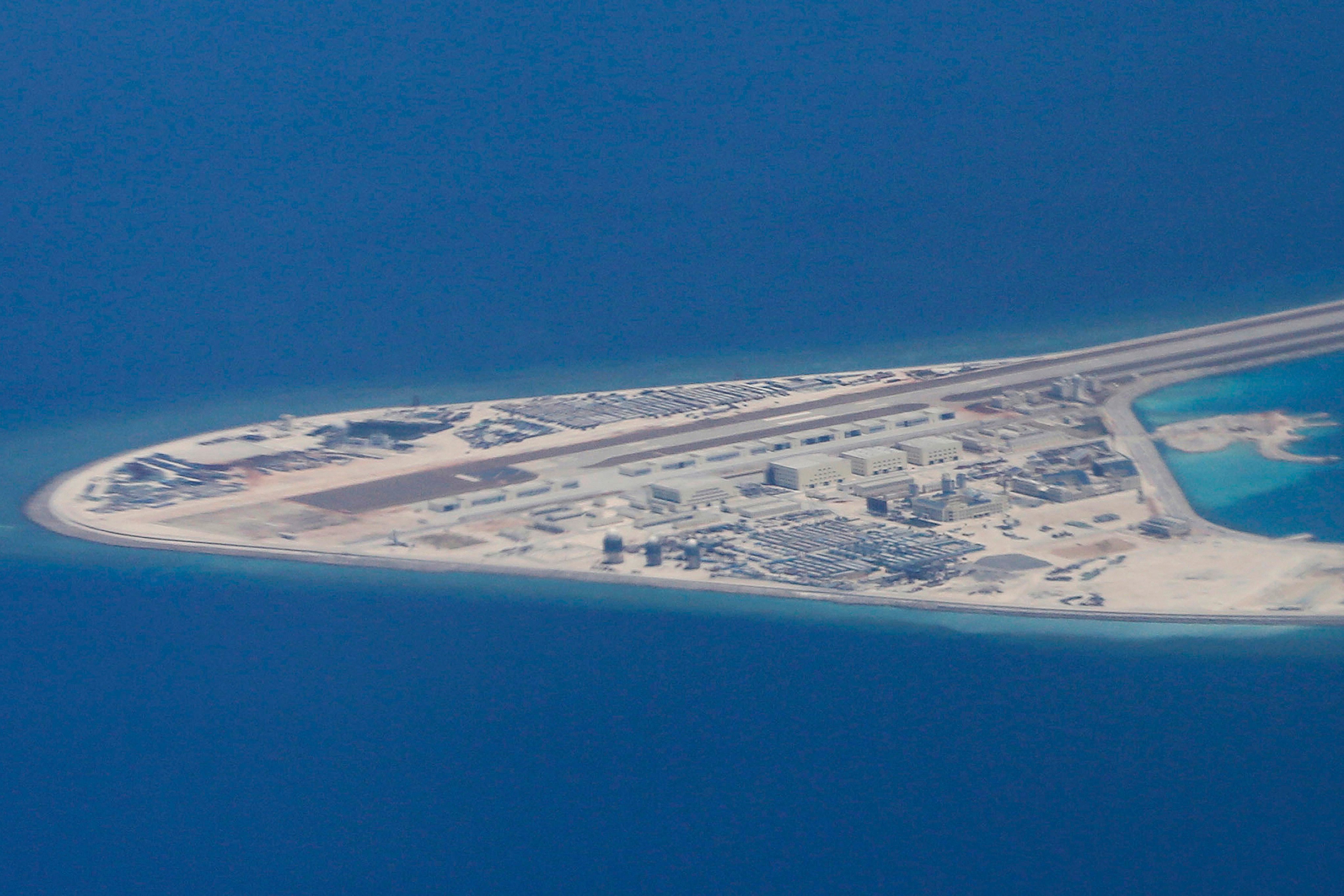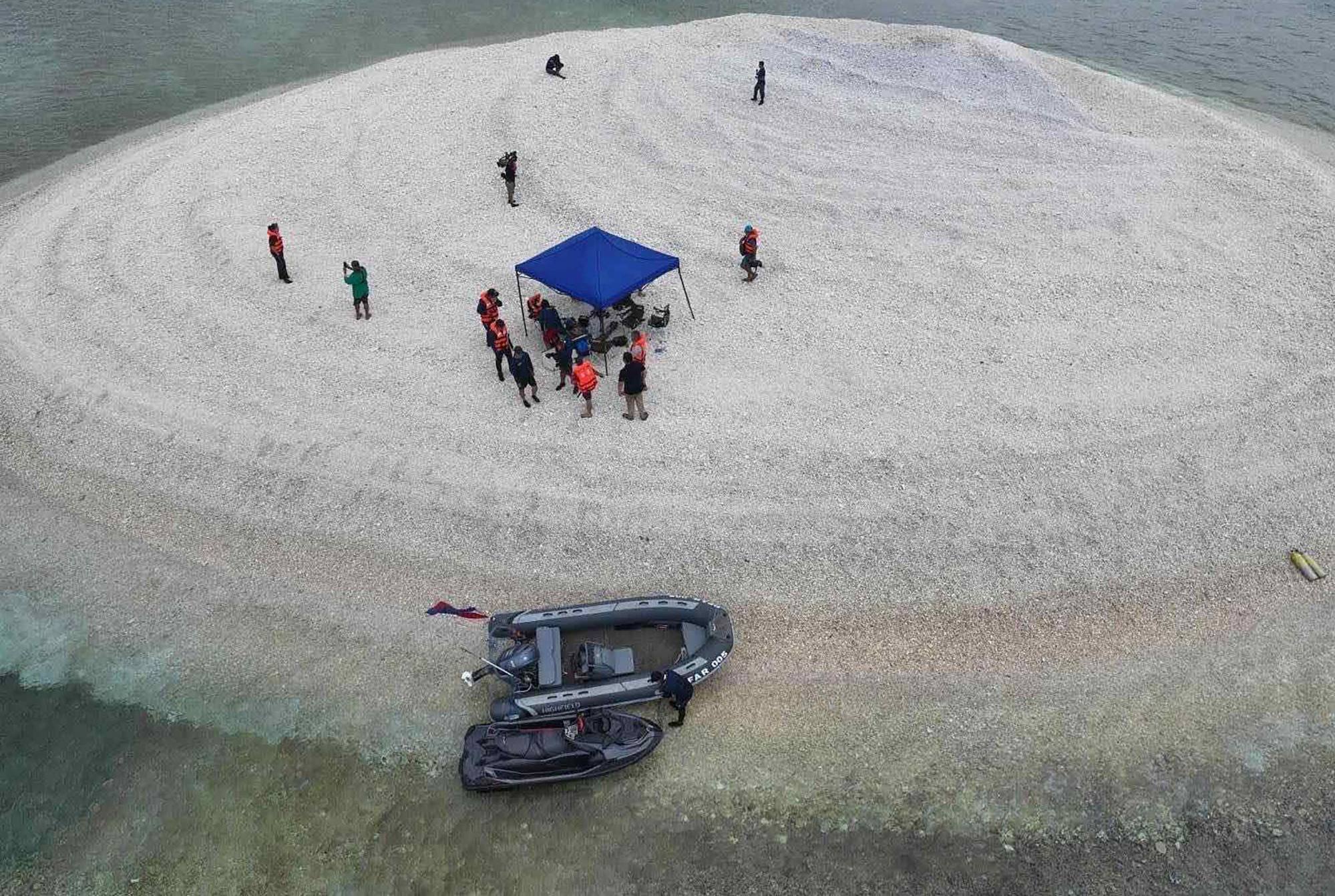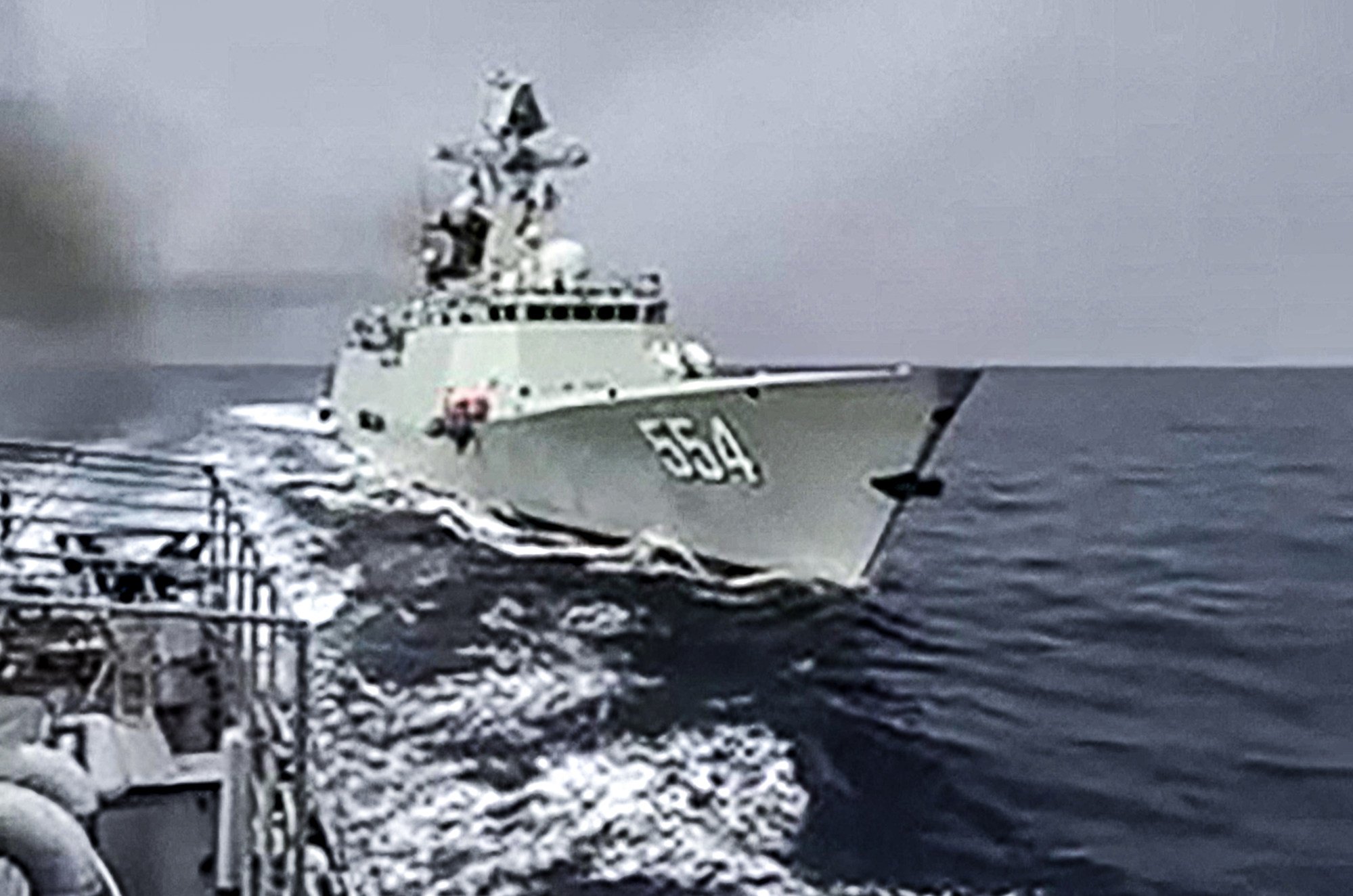Philippines to probe claims of sand dredging for Beijing’s South China Sea expansion
A Philippine intelligence official says sand from Manila Bay and elsewhere may have been used as landfill for Chinese military outposts

The Philippines is investigating claims that sand dredged from its coastal waters has been used in China’s artificial island construction in disputed parts of the South China Sea, raising concerns over domestic complicity, ecological damage and national security.
President Ferdinand Marcos Jnr has ordered a full inquiry into the allegations following testimony in a Senate hearing on Wednesday, where a top intelligence official said sand from Manila Bay and other areas might have ended up as landfill for Chinese military outposts.
Ashley Acedillo, deputy director general of the National Intelligence Coordinating Agency, told senators that Chinese-linked reclamation and dredging activities had happened in several parts of the country, including Cagayan province.
“There were earlier reports that sand taken directly from our coastal areas was being used as landfill, reportedly even in some of our disputed territories,” Acedillo said during a hearing of a Senate special committee on Philippine maritime and admiralty zones.
While no conclusive evidence has been presented, the intelligence agency is examining whether sand from Philippine sources was exported to support Beijing’s reclamation efforts, which have transformed the maritime landscape of the South China Sea over the past decade.
Press secretary Claire Castro confirmed the president’s directive, saying the investigation would examine any wrongdoing by local officials.
“After receiving information about this, the president ordered a thorough investigation into this. And now the investigation is ongoing. And when there is a final investigation or conclusion about this, an immediate order will be made. This is in accordance with the possible results of the investigation,” Castro told reporters.

Asked by reporters if local government units would be held accountable for coastal quarrying, Castro responded that it would depend on the outcome of the investigation.
China has been reclaiming land in the South China Sea, especially in the Spratly and Paracel Islands, to expand its territory and build military facilities, raising regional tensions, including with other claimant nations of the disputed waters.
Experts say the scale of Chinese land reclamation in the West Philippine Sea – Manila’s term for the portion of the South China Sea lying within its exclusive economic zone – is widespread.
While there was no firm data, Chester Cabalza, president of the Manila-based International Development and Security Cooperation think tank, said the environmental impact from China’s actions was detrimental.
“China is known for disrupting the ecological and maritime contours of the international sea,” Cabalza told This Week in Asia.
However, he dismissed speculation that China was receiving sand from Manila Bay for its reclamation in the West Philippine Sea. “Obviously, they will not dare take sand from Manila Bay,” he said.
According to the Philippine Navy, China has built military bases in the South China Sea, including within Manila’s exclusive economic zone. Among them are bases at Gaven Reef (Burgos), Zhubi Reef (Samora), Fiery Cross Reef (Kagitingan), Mischief Reef (Panganiban) and Johnson South Reef (Mabini), with facilities including an airstrip, a seaport, a fuel depot, and resting areas.

China’s reclamation activities
A study released by the University of the Philippines’ Institute of Biology last year showed a “low coral and fish diversity and abundance” at Sandy Cay, the reef closest to Subi Reef, China’s second-largest artificial island and military base in the South China Sea, and near the Manila-administered Thitu Island.
A separate survey of Thitu Island has also shown a decline in coral and fish species in the area.
There have been reports of China reclaiming maritime features that it occupies in the South China Sea since 2013.
China’s reclamation activities were shown by the reports to be more extensive in scale than reclamation works by other claimant states, including Vietnam, said Muhammad Faizal Bin Abdul Rahman, a research fellow at the S Rajaratnam School of International Studies in Singapore.
“But more importantly is how China uses the artificial islands it created to build facilities to establish administrative control over the sea for strategic reasons and projection of military power,” Faizal told This Week in Asia.
Illegal sand mining and reclamation activities had persisted, Faizal said, with cases reported in other countries including Malaysia, Indonesia and Vietnam over the years.
The Philippines could counter China’s reclamation activities by strengthening its naval and coastguard capabilities, boosting defence cooperation beyond Asean with countries like the US, Japan and Australia, and pushing for international pressure on Beijing, he said.
“But these are unlikely to compel China to roll back on the strategic gains it has made through land reclamation since 2013. More investigation would be needed to determine the extent of the problem in the Philippines and the role of local collaborators,” Faizal added.